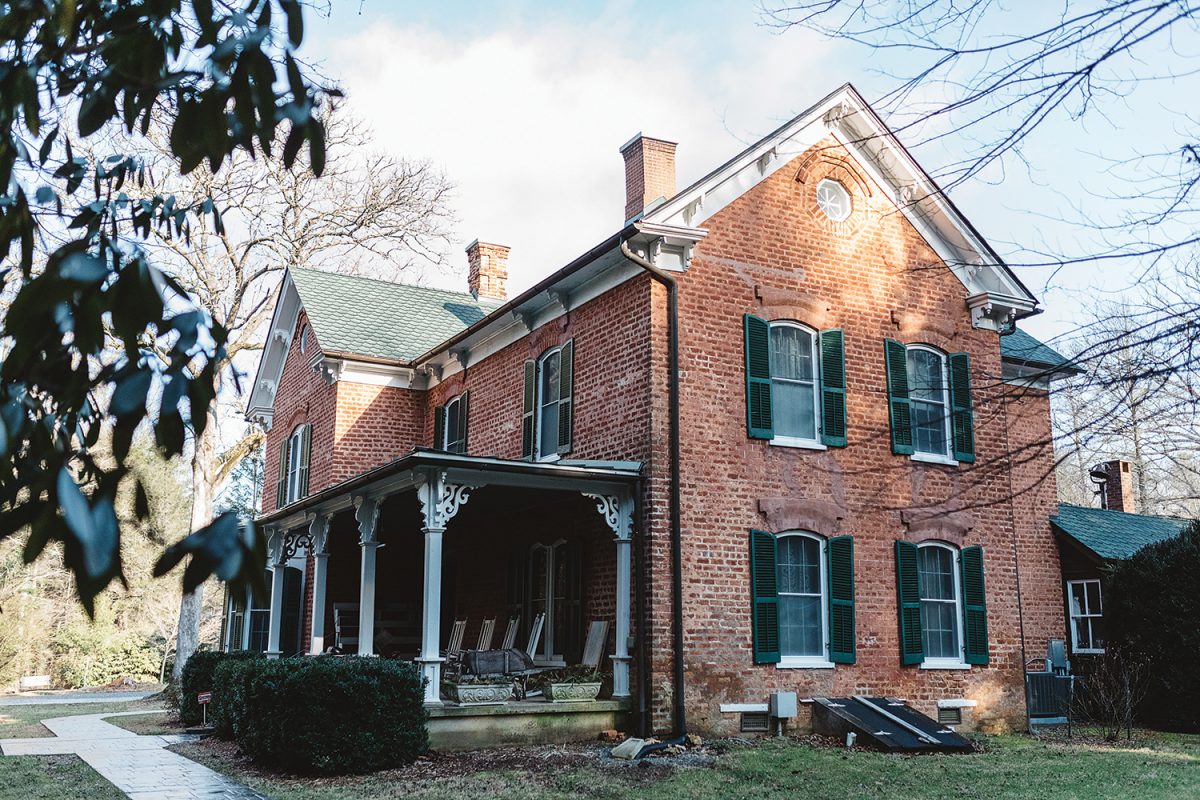
Photo by Rachel Pressley
When literary scion Thomas Wolfe wrote You Can’t Go Home Again, he was brooding about his childhood home, a boarding house on North Market Street in downtown Asheville. But in Hendersonville, at the Historic Johnson Farm, former boarders have been going home in droves — and bringing original handcrafted furniture with them.
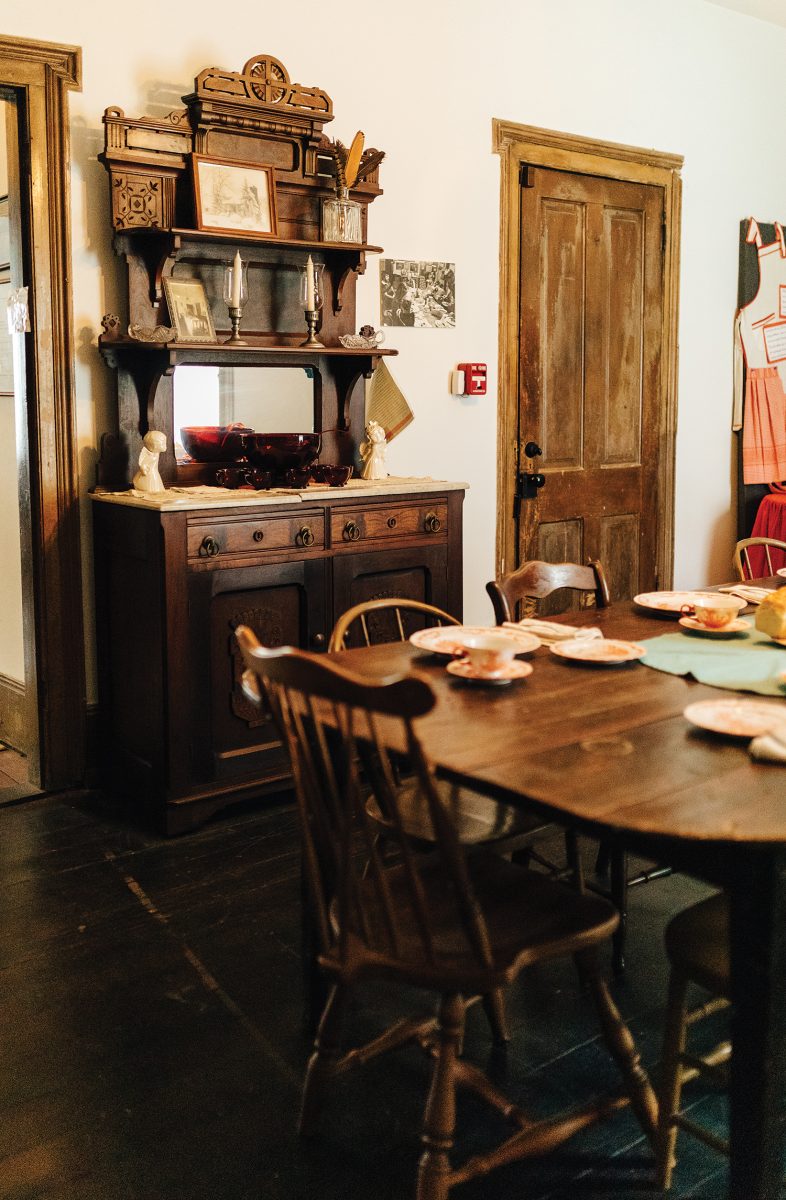
“As a historian, I love when original artifacts are returned,” says Mandy Gibson, the property’s farm manager. “Over the past few years, and especially within the past year, many former boarders and friends of the Johnsons have been returning furniture.” The pieces were made by self-taught woodworker Vernon Johnson and given as gifts to family and friends. More now than just sentimental items, “these are valuable artifacts that help us show what the house would have looked like when summer guests came up to stay” during the farm’s heyday, adds Gibson. “We are at the point where we may have to remove furniture that is not original to the house in order to make room for the returning pieces.”
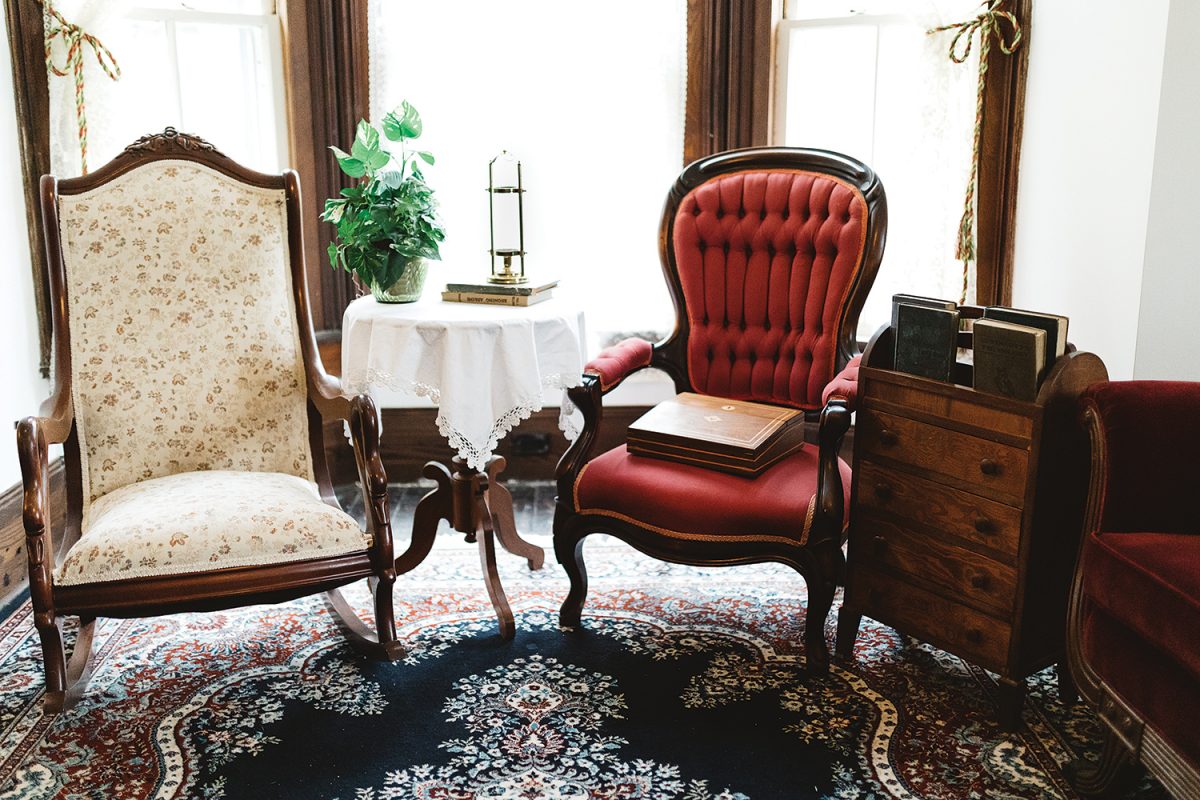
The tobacco-farming estate of 15 acres and 10 buildings, owned now by Henderson County Public Schools, is open year round for field trips, tourists, and history lovers. They’re looking at what life was like back in the 1920s and ’30s when the Johnson family — mother Sallie and her unmarried sons Vernon and Leander — did it all, from growing crops and cooking meals for their guests to making tables, cabinets, and desks that were used on the premises and bestowed on others. Vernon had a workshop beneath his bachelor’s pad, located in one of the outbuildings.
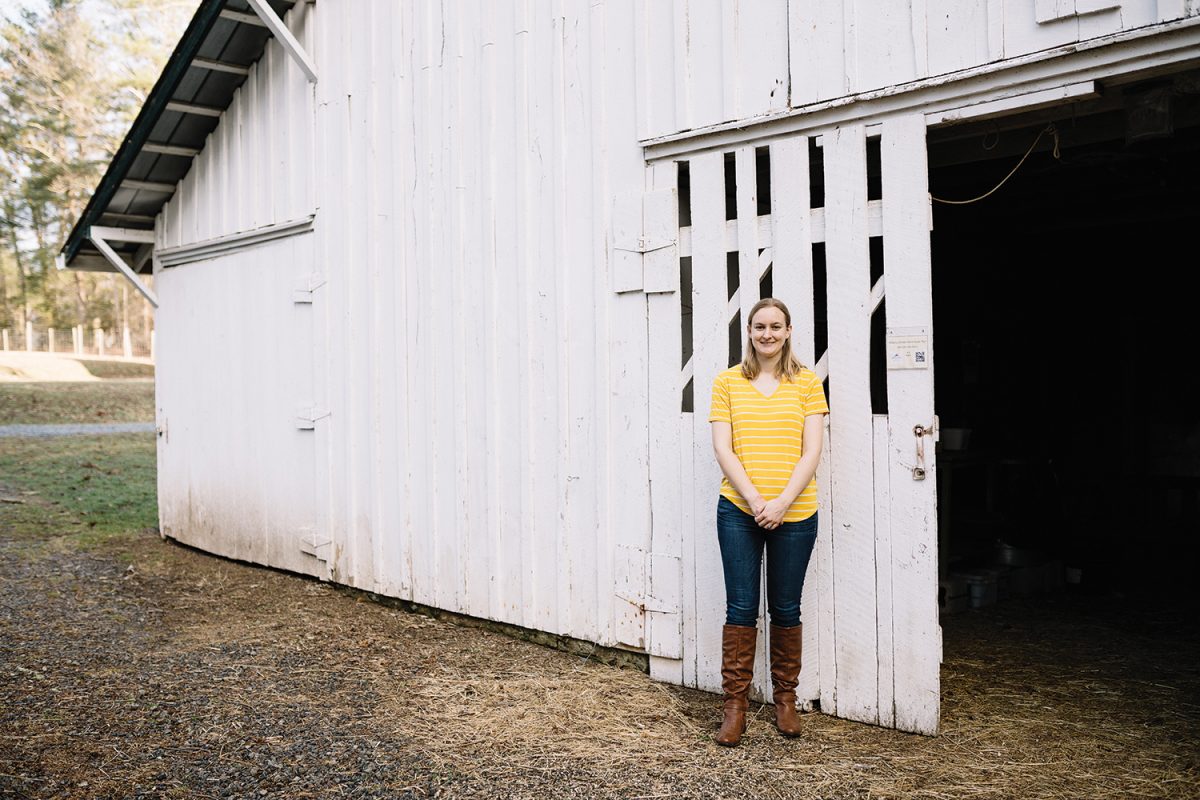
Photo by Rachel Pressley
Listed on the National Register of Historic Places and as a North Carolina Cultural Treasure, the house, built in 1880 with French Broad River mud bricks, has enough local history to fill volumes. When Gibson isn’t explaining what a telephone’s “party line” was or what a chamber pot was used for, she’s sorting through boxloads of the Johnsons’ personal papers.
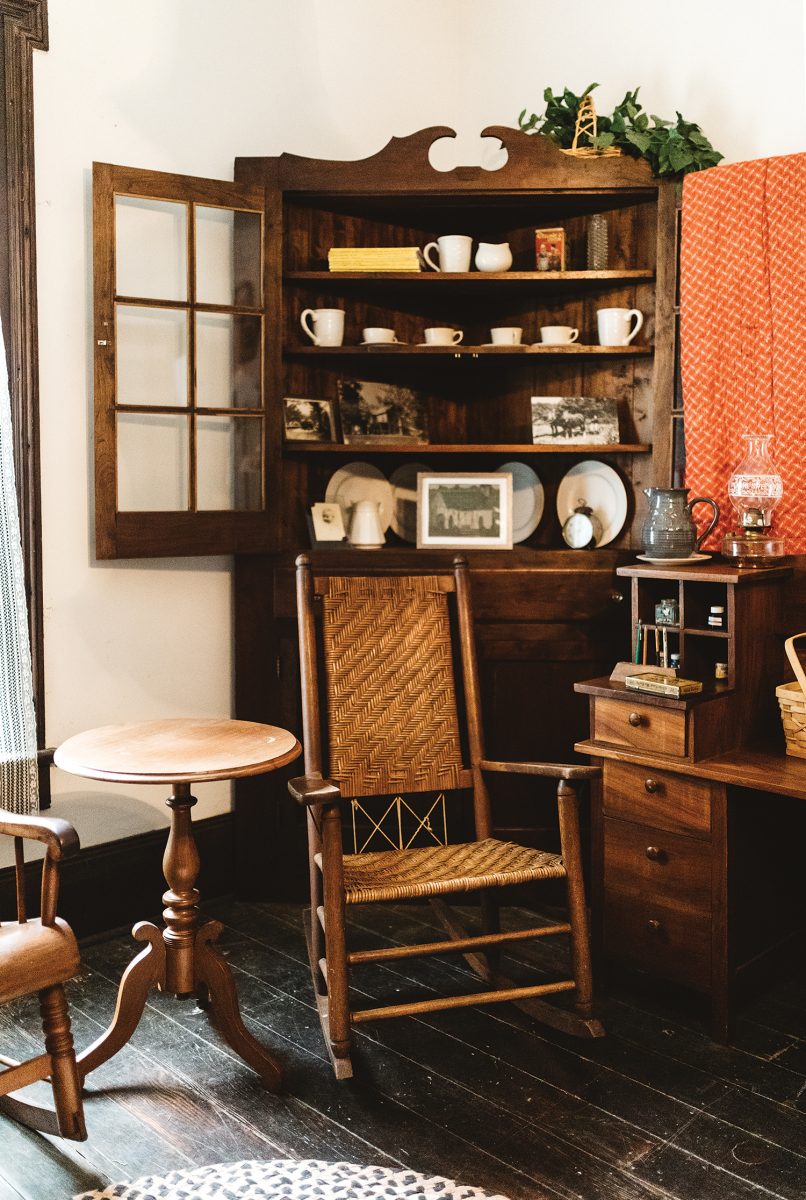
“Vernon and Leander Johnson were two of the most humble, generous people. After their mother died, they started giving away a lot of items to people who had stayed with them as summer guests. We have received numerous chairs, a dresser, a book stand, Sallie’s trunk, and a number of candlestick tables that Vernon made.”
Those tables, Gibson explains, “were Vernon’s go-to wedding gift. He would make one when someone he knew got married. He even drew out the pattern so that other people could try to make them.
“Everything that has been returned has been in great quality,” she reports. “The people who received these gifts treasured them. I think they feel happy that the furniture is going back home, but I did have one person who said she was going to miss [her items]. I told her she could visit them whenever she wants.”
The Historic Johnson Farm Spring Festival happens Saturday, April 27, 10am-4pm, with music, heritage demonstrations, wagon rides, crafts, and more. 3346 Haywood Road, Hendersonville. $5/adults, $3/students, free for kids under age 5. For more information, call 828-891-6585 or see hendersoncountypublicschools.org/johnson-farm.
